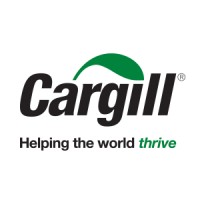FAQs
What does the Engineer Co-op program at Cargill aim to provide?
The Engineer Co-op program is designed to prepare participants for their career journeys by providing a safe environment to learn, grow, and cultivate skills. Participants can expect expansive learning resources, access to respected leaders, and curated development courses to help them confidently address global issues.
Where will I be located during my co-op?
The Engineer Co-op positions are available at multiple U.S. locations, allowing you to work in diverse environments.
Is relocation assistance provided to co-op participants?
Yes, Cargill offers housing assistance and relocation reimbursement to co-ops who qualify based on mileage.
How do I commute to work during the co-op?
Day-to-day transportation to and from work is the responsibility of the co-op participant.
Are there networking opportunities during the co-op?
Yes, co-ops are encouraged to participate in events that provide exposure to leadership, development opportunities, and networking with cross-functional interns and co-ops across the U.S.
What happens if I perform well during my co-op?
Co-ops who demonstrate outstanding performance and a curiosity to learn may be offered a second internship/co-op or a full-time position for the following year.
Will I have the chance to give back to the community during the co-op?
Yes, co-ops have access to volunteer and community outreach opportunities, and they are provided paid time off to participate in these volunteer activities.
What is the duration of the co-op position?
The co-op lasts at least 7-8 months in duration.
Will I be compensated for my work as a co-op?
Yes, co-ops are paid for their work during the program.

